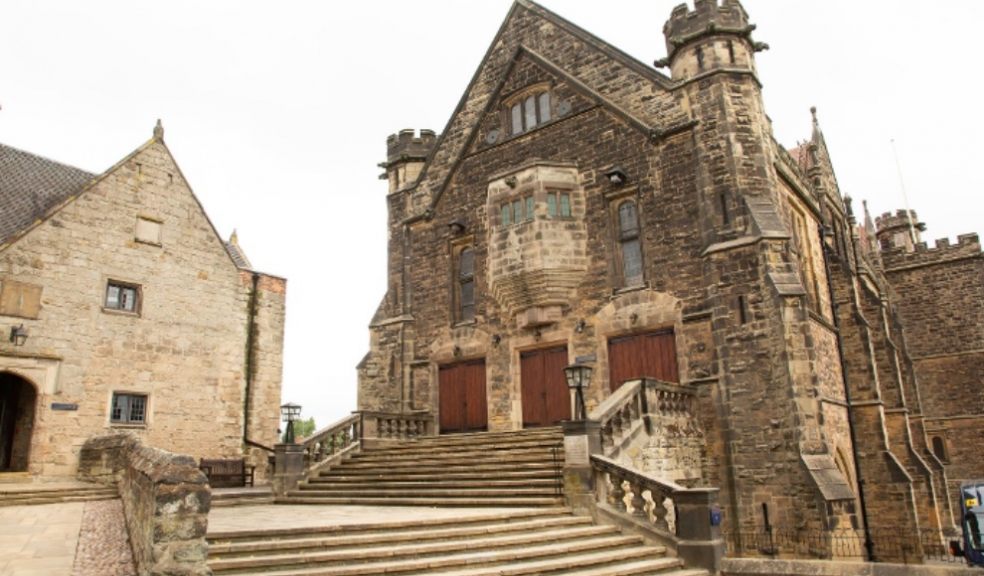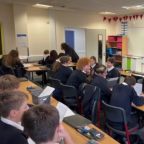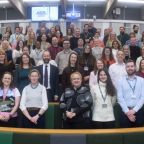
The pandemic won’t stop education for Repton School students
How schools can embrace technology to offer continuous learning support during the lockdown.
School closures are having a huge impact across the UK (and around the world), especially for students preparing for their GCSE and A Level exams. A horde of pandemic-related challenges has swarmed through educational institutions, leaving parents, teachers, and students asking: Can we expect students to sit through hours of remote classes? What about students who don’t have access to the right technology? How can teachers monitor student progress? Will parents have to step in as teachers? How will key workers and remote workers find time to co-teach their children?
But Repton School, Derbyshire, is setting an example to find a way through the pandemic. The school continues to support pupils academically and pastorally through this difficult time. Repton’s community-driven ethos has brought staff, students, and parents together to find solutions that minimise disruption to each pupil’s education. At the core of these solutions, technology has proved invaluable to teachers who are now offering holistic support to students remotely.
Uninterrupted Learning: Transferring Educational Materials Online
As schools across the UK were forced to close their doors to students in March, Repton was amongst the schools that immediately took the necessary steps to ensure that all pupils continue to receive the academic and emotional support that they need without any gap.
These are the steps that Repton has taken – and continues to take – to ensure that students continue to receive the academic, physical, and emotional support that they need.
- With 44-million people using technology around the world, technological infrastructure needs to be solid for educational institutions. Repton ensured that every student and academic staff member has sufficient IT connections and equipment in place to move learning frameworks online as smoothly as possible.
- Repton transferred all lessons to an accessible platform for easy use. All staff and students have been trained in Microsoft Teams, which Repton is using to deliver remote learning.
- Staff reviewed every pupils timetable and re-planned lessons, adapting class materials to formats that can be delivered online without sacrificing clear lesson outcomes. Teachers don’t spend long periods of time introducing virtual classes and quickly engage classes in interactive sessions instead.
- Teaching staff adapted their marking processes, now providing feedback to students using Microsoft Teams and marking work electronically.
- Repton refined its approach to remote learning, revising the volumes of work preparation and submission requirements to manageable levels for students to complete at home.
- The school adopted virtual learning systems that monitor student engagement by asking ad-hoc questions to check that students are actively using the educational systems throughout their designated learning times.
- Pastoral care is as important as academic support, and Repton was quick to transfer pastoral support systems online, developing a remote care programme within a week.
- Renowned for sporting success, Repton is keen for students not to miss out on their physical education. Each coach is providing videos of their coaching tips, and students are returning films of their sporting practice for critique.
- To encourage health and wellbeing further, Repton is also encouraging students to take part in the Repton Remote 100, where students opt to walk or run either 100, 200, or 300 miles during the summer term.
Remote Learning Materials: One Size Doesn’t Fit All
While many schools have launched one-size-fits-all learning materials, Repton is providing pupils with specially made virtual lessons, narrated PowerPoints, and video-call classes, all directed by teachers to keep the interruption to students’ learning minimal. As a result, the school saw a 3000% increase in Microsoft Teams use during April alone. School staff and students exchanged 3,400 Teams messages between January and March, and Repton teachers have created 585 Teams sites to serve individual classes.
Though the pandemic was always going to correlate with an increase in technology use, these statistics highlight the immense effort that the Repton teaching staff have gone to in order to continuously enrich their students’ educations with the tailored learning materials that they need. The statistics are also representative of the students’ commitment to their educations as they sign into virtual classes, shifting seamlessly into remote learning environments.
Collectively, the Repton community has transformed their educational model: staff have transformed their communication methods, students have transformed their approaches to learning, and parents have made sacrifices at home, from giving up PCs to repurposing rooms for their children’s studies, all to provide continuity in learning.
As Repton’s Director of Digital Development James Wilton says: ‘We’re all connected, all finding our way and, most definitely, in this together.’
Educational Technology: Individual Learning Paths
With technology at the heart of remote working, Repton is embracing technological systems and platforms as a benefit, as opposed to an inconvenient alternative to classroom-based learning. Repton has adopted technology as a method to enable students to self-direct their education in areas that will benefit them most as individuals.
In particular, Mr Wilton champions one-to-one devices such as OneNote for Education and FlipGrid combined with PowerPoint, which allow students to build ownership over their education. While OneNote allows teachers to monitor students’ live works in progress, FlipGrid is a social learning tool for students to share and reflect upon their educational creations, from interactive presentations to discussion conferences.
‘OneNote has changed everything for me, and the key activity for me is anything to do with student-driven modelling,’ Mr Wilton says.
As technology continues to become a bigger part of our lives, schools can reap its benefits to keep students engaged and motivated, which is especially important at a time when they are isolated from their friends and wider families.
By considering the adaptations that must be made across educational institutions during the pandemic as positively as possible, we can fulfil students’ needs with new ways of learning. Repton has recognised that these new approaches should minimise disruption as students prepare for their futures in this rapidly changing world. Repton has not managed change, it has managed transformation.
For more information on Repton School’s approaches to learning, visit www.repton.org.uk




















